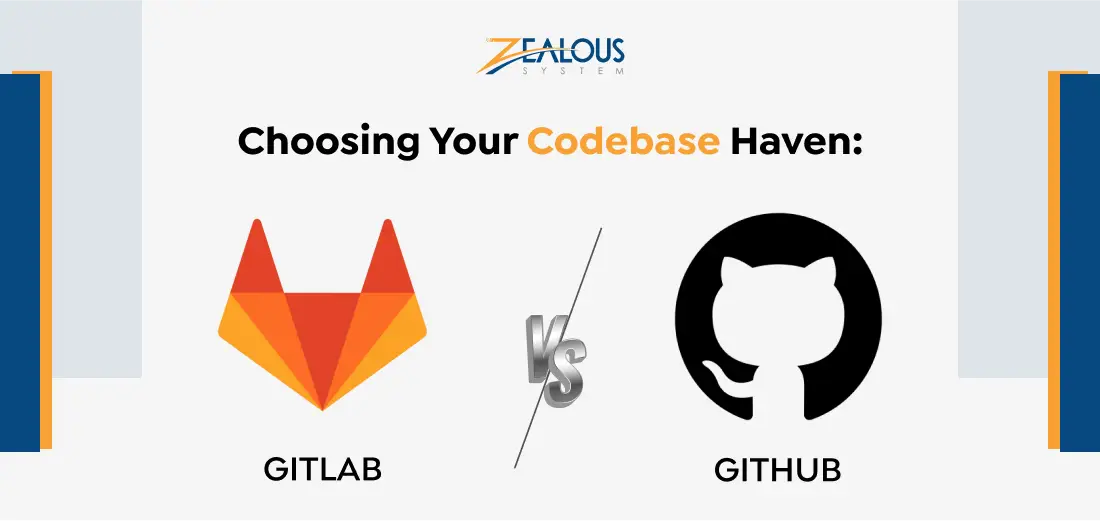
- Company
- Services
- UI/UX Design Services
- Microsoft Dynamics 365
- Mobile App Development
- AI Software Development
- Web App Development
- Generative AI Development
- Digital Product Development
- Enterprise Mobility
- SaaS Application Development
- Application Integration
- White-label WP Maintenance
- ERP Software Solutions
- Software Testing
- Offshore Development Center
- Let’s Connect
- Trending
- Technology
- Industry
- Build Your Team
- Our Work
- Company
- Services
- UI/UX Design Services
- Microsoft Dynamics 365
- Mobile App Development
- AI Software Development
- Web App Development
- Generative AI Development
- Digital Product Development
- Enterprise Mobility
- SaaS Application Development
- Application Integration
- White-label WP Maintenance
- ERP Software Solutions
- Software Testing
- Offshore Development Center
- Let’s Connect
- Trending
- Technology
- Industry
- Build Your Team
- Our Work
We use cookies and similar technologies that are necessary to operate the website. Additional cookies are used to perform analysis of website usage. please read our Privacy Policy
GitHub vs GitLab: Which is the Better in 2024? Differences and Similarities

The ultimate showdown: GitHub vs GitLab is here. We’re diving into the worlds of these two giants to see how they’ve revolutionized teamwork, code handling, and project flow. With new-age features, smooth integrations, and user-friendly interfaces, GitLab vs GitHub are on a collision course for greatness.
GitHub and GitLab are two of the most popular code hosting platforms in the world. They offer a wide range of features for developers, including version control, issue tracking, code review, and continuous integration and delivery (CI/CD).
Whether you’re a coding pro, a project manager, or a software development company, come along as we explore the options these platforms offer and decode the mystery of GitLab vs GitHub.
What are Git and Cloud-based Git Repositories?
In the fight of GitLab vs GitHub, let’s understand first what Git is. Git, a decentralized version control system, facilitates collaborative software development through the monitoring of source code modifications. Linus Torvalds crafted this tool in 2005, and it has since evolved into a widely accepted industry norm.
Operating by upholding a comprehensive record of all project alterations, Git empowers developers to efficiently collaborate across multiple branches and effortlessly integrate their revisions. A standout attribute of Git is its capacity to function offline, rendering it a sturdy option for developers working within diverse network environments.
On the flip side, cloud-centric Git repositories are online platforms that make use of Git’s version control functionalities. These repositories are situated on distant servers, allowing programmers to centrally store and collaborate on their code, accessible from anywhere as long as there’s an internet connection. Renowned services for hosting cloud-oriented Git repositories encompass GitHub, GitLab, and Bitbucket.
These platforms offer a variety of functionalities such as issue tracking, code review, and continuous integration, bestowing them with significant prowess for both teams and open-source endeavors.
GitHub vs GitLab: The Basics
What Is GitHub?
GitHub, founded in 2008, has become synonymous with code hosting and collaboration. It boasts a massive user base and is widely adopted by open-source and private project teams alike. GitHub provides a user-friendly interface, powerful integration options, and a variety of collaboration tools. In 2018, Microsoft acquired GitHub, which further solidified its place in the software development landscape.
What is GitLab?
GitLab, established in 2011, is another robust platform offering version control and DevOps capabilities. What sets GitLab apart is its focus on providing an all-in-one solution. It offers not only source code management but also built-in continuous integration and continuous delivery (CI/CD) pipelines, making it an attractive choice for organizations aiming to streamline their development lifecycle.
GitHub vs GitLab: Key Features
GitHub Key Features
- Version control: GitHub uses Git, a distributed version control system. This means that you can work on your code offline and then sync your changes with the remote repository.
- Issue tracking: GitHub has a built-in issue tracker that allows you to track bugs, feature requests, and other issues.
- Code review: GitHub allows you to review code changes before they are merged into the main branch.
- CI/CD: GitHub has a built-in CI/CD pipeline that allows you to automate the build, test, and deployment of your code.
- Other features: GitHub also offers a variety of other features, such as wikis, projects, and organizations.
GitLab Key Features
- Version control: GitLab uses Git, the same distributed version control system that GitHub uses.
- Issue tracking: GitLab has a built-in issue tracker that is similar to GitHub’s.
- Code review: GitLab also has a built-in code review feature.
- CI/CD: GitLab has a built-in CI/CD pipeline that is more comprehensive than GitHub’s.
- Other features: GitLab offers a wider range of features than GitHub, including wikis, projects, organizations, and a marketplace for extensions.
GitLab vs GitHub: Similarities
GitHub vs GitLab has a bundle of similarities rather difference and here we are discussing the same:
Foundation in Git Version Control
GitLab and GitHub share a common foundation in Git, the decentralized version control system initiated by Linus Torvalds. This underpins their core functionality of tracing code alterations within repositories.
Web-Centric Platforms
Both platforms are web-based, establishing a centralized hub for hosting, overseeing, and collectively refining software projects. Accessible via web browsers, they facilitate seamless long-distance collaboration.
Reservoir Hosting
On both platforms, users can generate repositories to systematically house and structure code. The accessibility of these repositories, whether public or private, aligns with specific project prerequisites.
Pulling and Merging Requests
The function of GitHub’s “Pull Requests” and GitLab’s “Merge Requests” closely mirrors each other. These mechanisms expedite code evaluations and dialogues, enabling developers to proffer modifications and subsequently integrate them into the primary codebase following assessment.
Issue Tracing
Inherent to GitHub and GitLab are integrated systems for tracking issues, simplifying the orchestration of tasks, glitches, and appeals for new features within a unified framework. This amplifies the organization and openness of projects.
Collaborative Utilities
Both platforms furnish collaborative utilities encompassing wikis, project boards, and harmonization with external services (such as Slack and Jenkins) to refine development workflows.
Control over Access
Robust control over access is a shared attribute, empowering project administrators to oversee user permissions across multiple tiers (reading, writing, administrative) as a safeguard for code and data.
Continuous Integration/Continuous Deployment (CI/CD)
Notably akin in purpose, GitHub Actions (within GitHub) and GitLab CI/CD (within GitLab) bestow automation to coding compilation, testing, and deployment. These parallel offerings uphold code excellence and expedite deployment procedures.
APIs and Incorporations
GitHub and GitLab embrace APIs that enable the assimilation of distinct development tools, bespoke scripts, and automation, thereby extending their adaptability to cater to specific project prerequisites.
Community and Documentation
Vibrant user communities and comprehensive documentation are synonymous traits of both platforms. Developers can readily access support, tutorials, and resources to adeptly navigate the platforms.
User-Intuitive Interfaces
A shared facet of GitHub and GitLab lies in their user-intuitive interfaces, which cater to developers across a spectrum of skill levels, facilitating effective interaction with code repositories and collaborative undertakings.
Differences: GitHub vs GitLab
Too many similarities our way, let’s decode a good difference of GitLab vs GitHub:
| Aspect | GitHub | GitLab |
|---|---|---|
| Type | Web-based code hosting and collaboration | Web-based platform with built-in CI/CD, version control, and collaboration |
| Licensing | Proprietary, free and paid plans | Open-source, self-hosted/cloud options |
| Collaboration | Emphasizes code collaboration | Focuses on collaboration, code review, issue tracking, and CI/CD |
| CI/CD | Offers GitHub Actions for automation | Provides built-in CI/CD via GitLab CI/CD |
| Code Reviews | Supports pull requests for review | Integrates code review, fosters collaboration |
| Issue Tracking | Provides issue tracking system | Includes advanced issue boards, service desk |
| User Interface | User-friendly, intuitive interface | Adaptable interface, customizable dashboards |
| Market Share | Popular for open-source projects | Growing popularity, all-in-one solution |
| Community and Integration | Large community, extensive integrations | Active community, lifecycle integration |
| Self-Hosting Options | Offers GitHub Enterprise for on-premises | Provides GitLab Community/Enterprise Editions |
| Automation | Integration with GitHub Actions | In-depth automation via GitLab CI/CD |
| Pricing | Free plans, paid for private repos | Free core, subscription plans |
| Security | Vulnerability scanning, code scanning | Built-in security, container scanning, compliance |
| Ease of Use | User-friendly, simple interface | Comprehensive features, learning curve |
| Monitoring | Integrates with monitoring tools | Built-in monitoring and alerts |
GitHub vs GitLab Pricing in 2024
It all has boiled down to the pricing point now in the game of GitLab vs GitHub:
| Plan | GitHub | GitLab |
|---|---|---|
| Free | Unlimited public repositories, 3 private repositories | Unlimited private repositories, 1000 CI/CD minutes per month |
| Personal | $7 per month | $19 per month |
| Team | $9 per month per user | $99 per month per user |
| Enterprise | Custom pricing | Custom pricing |
GitHub vs GitLab 2024: Which One to Choose?
Both GitHub vs GitLab stand as popular platforms for hosting code, presenting an array of functionalities for effective Git repository management. However, discernible distinctions exist between the two that might sway your preference based on your specific requirements.
GitHub holds the mantle as the more renowned platform, boasting a user base exceeding 100 million. Its prominence extends to a larger community of full stack developers and open-source projects. Encompassing an array of features such as code review, issue tracking, and continuous integration and delivery (CI/CD), GitHub presents a comprehensive toolkit.
On the other hand, when we talk about GitHub vs GitLab, GitLab emerges as a relatively newer contender, experiencing rapid ascent in popularity. Its niche centers on DevOps, offering a suite of functionalities tailored to simplify and automate the software development process. Notably in GitHub vs GitLab, GitLab provides a free self-hosted variant, particularly appealing to businesses or organizations desiring heightened control over their infrastructure.
Conclusion
In the battle between GitLab vs GitHub or GitHub vs GitLab, whoever wins, it’s going to be a good win.
In the world of code hosting platforms, the GitLab vs GitHub debate gives developers many options. GitHub is a leader due to its strong community and wide range of tools, while GitLab focuses on DevOps and offers self-hosting. Your choice depends on your needs, offering efficient and collaborative software development paths in the tech debate of GitHub vs GitLab.
Read Also:
- Java Vs Python: Which Is Better For Future?
- Flutter Vs. FlutterFlow: Which One Fits Your App Development Style?
- TechOps Vs DevOps: Aligning IT Strategies For Seamless Operations
- Flutter Vs React Native: A Quick Comparison
- React Vs Angular: Which Is Better For Web Development?
- Angular Vs Vue.js – A Detailed Comparison Between Two Popular JavaScript Frameworks
We are here
Our team is always eager to know what you are looking for. Drop them a Hi!
Pranjal Mehta
Pranjal Mehta is the Managing Director of Zealous System, a leading software solutions provider. Having 10+ years of experience and clientele across the globe, he is always curious to stay ahead in the market by inculcating latest technologies and trends in Zealous.
Table of Contents
×



Comments